About NEPHTC
Central Office
NEPHTC Central Office:
Department of Environmental Health at Boston University School of Public Health
NEPHTC
 Patricia A. Janulewicz Lloyd, DSc, Principal Investigator
Patricia A. Janulewicz Lloyd, DSc, Principal Investigator
Dr. Janulewicz is the Principal Investigator for NEPHTC. Dr. Janulewicz combines her expertise in environmental health, neurotoxicology and teratology to examine how environmental exposures impact the nervous system. Her work spans the life-course and examines prenatal, early postnatal, childhood and adult exposures. Dr. Janulewicz’s ongoing projects include investigating the gene-environment interactions in multiple cohorts of Gulf War veterans in order to determine why some veterans became ill following in-theater exposures and other did not, examining the link between the microbiome and veterans health, exploring the role endocrine disrupting chemicals have on thyroid function, examining the effects of maternal medication use during pregnancy and child neurodevelopment, investigating the long-term developmental trajectories of children prenatally exposure to the Zika virus and assessing head impact exposures as a public health issue using an exposure assessment framework.

Candice Bangham, MPH, Senior Program Manager, Regional Coordinator, NEPHTC Daily Operations, Leadership Insitute, Disability Impact Statement
Candice is the program manager for NEPHTC’s Leadership Insitute, Disability Impact Statement, Special Projects at Boston University School of Public Health. Candice previously worked in the Department of Community Health Sciences at BUSPH as a Senior Evaluation & Communications Manager for several federally funded multi-method projects that worked to reduce prenatal alcohol exposure and fetal alcohol spectrum disorders. She received her BA in Sociology from the University of North Carolina at Asheville and her MPH from Boston University.
Karla Todd Barrett, MBA, MSM, Senior Program Manager and Training SpecialistKarla Todd Barrett is the Senior Program Manager and Training Specialist at the Boston University School of Public Health (BUSPH). She supports the NEPHTC team across functions, including student pathway quality improvement, data analysis, reporting, advisory engagement, and training collaboration relationship building. Ms. Todd Barrett has authored or presented about NEPHTC training and student pathway innovations for the public health workforce at NACCHO, APHA, NNPHI, SOPHE and NACCHO Emergency Preparedness. In the past year, NEPHTC reached over 60,000 participants, through 500+ trainings, in collaboration with health departments, associations, and other academic institutions, reaching a diverse public health professional workforce. NEPHTC is committed to supporting Community Health Worker organizations in New England. Ms. Todd Barrett is a co-author of the Public Health Learning Agenda for Systems Change Manuscript and Toolkit. Five of NEPHTC’s courses have been selected by the CDC Learning Connection for national promotion and 22 of NEPHTC’s self-paced courses have been awarded quality seals by the Public Health Learning Navigator.
 Kathleen MacVarish, MS, REHS, RS, Instructional Designer
Kathleen MacVarish, MS, REHS, RS, Instructional Designer
Ms. MacVarish, Director of Practice Programs, is the Associate Professor of Instructional Design for NEPHTC. A number of workforce development programs and courses under her direction have received state and national recognition for innovation, impact, and best practices. Kathleen was a local Board of Health Agent in Massachusetts for 15 years and also directed local tobacco control programs and worked as a Sanitarian/Inspector in California and New York. She has been a Registered Sanitarian since 1986 and currently holds national (Registered Environmental Health Specialist) and state (Registered Sanitarian) credentials. She received a BS in Food Science from Cornell University and an MS in Environmental Studies from UMass Lowell. In 2012 she graduated from the Centers for Disease Control and Prevention Environmental Public Health Leadership Institute and in 2016 she matriculated in the MEd Instructional Design program at UMass Boston. Kathleen’s professional activities have included a variety of appointed and elected positions in national and state associations.
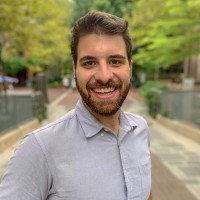
Mark Takakjy, Training Manager
Mark Takakjy is a Training Manager serving both New England Public Health Training Center (NEPHTC) and the Local Public Health Institute (LPHI) of Massachusetts. Mark received a B.S in Game Development and Production from Drexel University and has centered his career around taking the need for effective training content using industry level digital media production tools and practices. After serving as a digital media specialist in SPH’s Lifelong Learning office, Mark is thrilled to continue working in public health training using his expertise to help identify and address the needs of public health workers to ensure they are well equipped to face a myriad of constantly evolving challenges that affect the general public.

Maurine Crouch, MPH, Student Placement Manager and CHES Manager
Maurine Crouch is a program manager in the Office of Public Health Practice at the Yale School of Public Health. She works with the New England Public Health Training Center as the training partner for Connecticut, focused on continuing education for public health professionals. Prior to this position, she has worked in COVID response, substance use disorder research, health communication, and nutrition education. She received her BA in Anthropology from the University of Virginia and her MPH in Community Health Education from the University of North Carolina at Greensboro.

Akanksha Kadam, MPH Candidate, Data Analyst
Akanksha Kadam is a Student Data Analyst for NEPHTC at the Boston University School of Public Health (BUSPH). She is currently pursuing a Master of Public Health degree at BUSPH with concentrations in Epidemiology & Biostatistics and Health Communication and Promotion. Prior to joining BUSPH, Akanksha worked as an analyst for a consultant firm in India, focusing on public safety. She holds an Engineering degree in Biotechnology from Manipal University, India.

Ivana Nguyen, MPH Candidate, Data Analyst
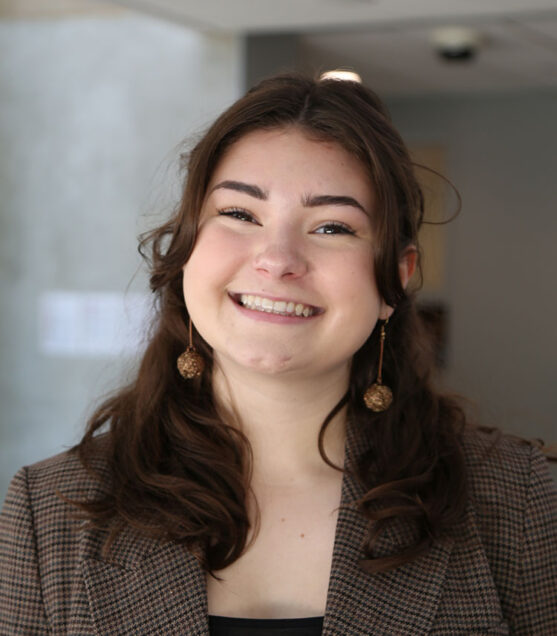 Amanda Lanciault, MPH Candidate, Marketing Assistant
Amanda Lanciault, MPH Candidate, Marketing Assistant
Amanda Lanciault (she/her) is a first year MPH student pursuing a certificate in Health Policy and Law. She received her undergraduate degree from Brandeis University in 2023 majoring in Public Health and Social Justice and Social Policy. Amanda’s experience ranges from research, advocacy, and communications work with folks throughout the Commonwealth.

Mia Taylor, MPH Candidate, Training Program Assistant
Mia is the Student Training Program Assistant for NEPHTC at the Boston University School of Public Health. She is currently pursuing a Master of Public Health degree at BUSPH with a functional certificate in Epidemiology & Biostatistics and a context certificate in Maternal and Child Health. Mia received her Bachelor of Arts in Health and Society from the University of Vermont in 2022.

Martine Chase, DrPH Fellow, Evaluation and Assessment Lead
Martine Chase is a Doctor of Public Health (DrPH) fellow working with NEPHTC. She is pursuing her DrPH at Boston University’s School of Public Health. Martine’s experience includes capacity building, strategic planning, control of infectious diseases and strengthening of strategic information systems. Her previous roles included serving as Strategic Information Team Lead for the CDC Caribbean Regional Office and as an International Consultant with- the PAHO/WHO Eastern Caribbean Office and the International Treatment Preparedness Coalition (ITPC Global).
Connecticut
Snapshot of NEPHTC in Connecticut:
NEPHTC’s partner, Yale School of Public Health, is collaborating with the Connecticut Department of Public Health to implement two new professional development initiatives designed to strengthen the state’s current and future public health workforce: The Public Health Training Academy of Connecticut and the Public Health Fellowship Program.
Community Based Training Partner:
Yale School of Public Health
Principal Investigator and Executive Director, Office of Public Health Practice:
 Susan Nappi, MPH
Susan Nappi, MPH
Susan Nappi is the Executive Director of the Office of Public Health Practice at the Yale School of Public Health. With a diverse portfolio in public health practice and research, she has held multiple positions in Connecticut including Senior Director of Community Impact at the United Way of Greater New Haven, Executive Director of the Community Center of Excellence in Women’s Health (CCOE) at Griffin Hospital, and Practice Administrator of the Griffin Faculty Practice Plan. Susan has also managed research teams at the Yale School of Public Health and the VA Alcohol Research Center. Her primary interest is building collaborative, equitable, and mutually beneficial community-academic partnerships that espouse a multidisciplinary approach to addressing the social drivers of health. Susan is a first-gen college graduate and received her BA in psychology from the State University of New York, Purchase, and her MPH from Yale University in chronic disease epidemiology. She is currently pursuing her DrPH in Public Health Leadership at the University of Illinois Chicago School of Public Health.
Program Manager, Office of Public Health Practice:
 Maurine Crouch, MPH
Maurine Crouch, MPH
Maurine Crouch is a program manager in the Office of Public Health Practice at the Yale School of Public Health. She works with the New England Public Health Training Center as the training partner for Connecticut, focused on continuing education for public health professionals. Prior to this position, she has worked in COVID response, substance use disorder research, health communication, and nutrition education. She received her BA in Anthropology from the University of Virginia and her MPH in Community Health Education from the University of North Carolina at Greensboro.
In addition to coordinating trainings in Connecticut, Maurine serves as part of the NEPHTC central office staff. managing the student field placement program, CHES credits, and acts as the expert on the TRAIN LMS.
Partner’s special areas of expertise:
Environmental Health, Incident Command Systems, Performance Improvement, Train the Trainer Effective Training,
Infection Prevention
Collaborating partners’ website(s):
Advisory Committee member(s):
Patrice Sulik – Director of Health, North Central District Health Department
 Tom St. Louis, MSPH – Director, Office of Public Health Workforce Development, CT Department of Public Health
Tom St. Louis, MSPH – Director, Office of Public Health Workforce Development, CT Department of Public Health
Tom has been with CT DPH for over 20 years, and until recently served as an epidemiologist and Program Director in the Environmental and Occupational Health Assessment program. Tom received his Bachelor of Science degree in Physiology and Neurobiology from UConn and his Master’s degree in Public Health Epidemiology and Biostatistics from the University of Alabama at Birmingham. In July 2022, Tom was asked to serve as the Commissioner’s new Director for the Office of Public Health Workforce Development, with the charge of reimagining and rebuilding public health workforce development from the ground up in order to build a right-sized, well-trained, more diverse, and equity-focused public health workforce in CT to meet the challenges of a post-pandemic world.
Sample training/work with NEPHTC:
- Transmission-Based Precautions in the Ambulatory Care Setting
- Standard Precautions in the Ambulatory Care Setting: Personal Protective Equipment and Safe Surfaces
- Standard Precautions in the Ambulatory Care Setting: Safe Cough Practices
- Standard Precautions in the Ambulatory Care Setting: The Basics of Hand Hygiene
- Foundations of Infection Prevention in the Ambulatory Care Setting
- The Green & Healthy Homes Initiative: Successful Cross-Sector Collaboration
- CT Healthy Homes Outdoors: Climate Change, Lung Disease & Mitigation Strategies
- Innovation in Public Health: Giving Meaning to a Buzzword
- CT Healthy Homes: Mold Confusion? Think Moisture Intrusion
- CT Healthy Homes – CT Statewide Hoarding Resources: Assets for Community Agencies
- Agri-Tourism in CT and Public HealthEmerging Contaminants: What Public Health Needs to Know
- Health Care Incident Command Systems: Application for Massachusetts Community Health Centers
- Health Care Incident Command Systems: Application for Maine Community Health Centers
- Health Care Incident Command Systems: Application for Connecticut Community Health Centers
- Health Care Incident Command Systems: Application for Rhode Island Community Health Centers
Maine
Snapshot of NEPHTC in Maine:

NEPHTC is proud to partner with the Maine Public Health Training Center (MPHTC) to offer a free certification program to enhance public health workforce development. Learners can earn a Certificate in Public Health Management from MPHTC when they complete a series of NEPHTC courses. This program will expand the learner’s understanding of systems thinking, managing budgets, marketing and more.
The Maine Public Health Association collaborates with NEPHTC to produce webinars regularly, including the two-part webinar series, “Health Equity: Moving Information to Action.” The program included “The History and Contemporary Reality of Black Communities in Maine” and “Race as a Social Construct in Data and Practice.” The series focused on Maine’s history with racism, including how systemic racism exists in Maine today, and how to uphold diversity and equity in research and policy.
Community Based Training Partner:
University of New England Center for Excellence in Health Innovation
Principal Investigator:
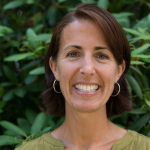 Jennifer Gunderman, MPH
Jennifer Gunderman, MPH
Jennifer’s original career path was to be a physician but soon realized that my skill and passion belonged elsewhere. Luckily my college has a public health major, and the rest is history. My background includes being a Peace Corps volunteer in Niger, working with the state of Maine health department as an infectious disease epidemiologist, providing technical assistance to Caribbean countries on HIV surveillance, and even owning an organic farm. I live in Belfast, Maine with my 3 children where we enjoy being outdoors as much as possible.
State Technical Assistance Partner:
Maine Public Health Association
 Rebecca Boulos, MPH, PhD, Executive Director
Rebecca Boulos, MPH, PhD, Executive Director
Dr. Boulos is MPHA’s Executive Director, having taken on the role in August 2016. Becca comes to this position having served on the MPHA Board from 2014-2016, including as vice-president of the Board. Her career in public health spans 13 years, having worked for research institutions and non-profit organizations. Prior to working for MPHA, Becca was assistant professor at the University of New England’s School of Community and Population Health, where she developed and directed a new undergraduate program in nutrition, and directed UNE’s undergraduate public health program. During her time at UNE, she served as either principal or co-principal investigator on several research grants, receiving funding from organizations such as the Robert Wood Johnson Foundation and the U.S. Department of Agriculture. Her areas of specialization are community-based participatory research, nutrition, physical activity, and childhood obesity prevention.
Partners’ areas of expertise:
Management, Plain Language, Health Numeracy, Population Health, Aging, ECHO case teaching, Obesity
Collaborating partners’ website(s):
- UNE Center for Excellence in Health Innovation
- Maine Public Health Association
- Maine Center for Disease Control and Prevention
Advisory Committee member(s):
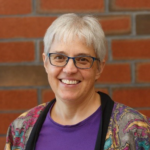 Nancy Birkhimer, MPH – Manager of Accreditation and Performance Improvement, Department of Health and Human Services, Public Health Operations
Nancy Birkhimer, MPH – Manager of Accreditation and Performance Improvement, Department of Health and Human Services, Public Health Operations
Sample training/work with NEPHTC:
Massachusetts
Snapshot of NEPHTC in Massachusetts:

The NEPHTC funding helps train professionals from local, regional, and state public health agencies and school districts in Massachusetts. With 351 cities and towns and limited regional or county government, that’s a lot of school districts and health departments!
The Local Public Health Institute of Massachusetts offers a comprehensive “New to Local Public Health” resource kit to help those new to the field develop the skills and competencies they need to be confident and successful in their new role. Additionally, public health officials can choose from fifty “On Your Time” trainings that cover foundational public health topics as well as public health sciences, emergency preparedness, environmental health, and disease surveillance and control. These free trainings are available online, 24/7, and can generally be completed in one to three hours.
Nurses who want to work in Massachusetts schools must complete a set of required courses and, with NEPHTC educational technology, one required course “Medication Administration and Delegation” can now be taken online through our partners at the School Health Institute for Education and Leadership Development (SHIELD). The online version includes an E-Book to describe regulatory requirements and is available 24/7, so nurses don’t have to wait for a classroom course that had only been offered three times per year. In addition, SHIELD has developed a series for school health professionals on how to support mental health in schools, “Supporting Mental Health for All Students: A Series for School Health Professionals.”
In addition, NEPHTC hosts monthly webinars on a wide range of topics for public health professionals and community health workers, reaching attendees across the country.
Massachusetts Training
Local Public Health Institute (LPHI)
 Ojaswini (Wini) Bakshi, MA, MPH, Program Manager, Local Public Health Institute (LPHI)
Ojaswini (Wini) Bakshi, MA, MPH, Program Manager, Local Public Health Institute (LPHI)
Ojaswini is the Program Manager for the Local Public Health Institute (LPHI) of Massachusetts. She has a background in social work and has an MPH in the field of health and social behavior. She worked for four years across South Asia on issues such as immunization, nutrition, maternal and child health, and sexual and reproductive health. She conducted primary and secondary research for human rights bodies, implemented programs in low and middle income settings, and monitored and evaluated policies and programs for UNICEF and WHO. Her work in public health sought to understand health issues in resource constrained settings, have clarity in analyzing policies/exploring their impact, and devising communication methods for optimal results.
School Health Institute for Education and Leadership (SHIELD)
 Beverly Heinze-Lacey, MPH, BSN, RN – Director SHIELD
Beverly Heinze-Lacey, MPH, BSN, RN – Director SHIELD
Ms. Heinze-Lacey is Director of SHIELD, overseeing and delivering professional development training programs for MA school nurses and other school wellness professionals. She implemented a statewide Screening, Brief Intervention, and Referral to Treatment (SBIRT) in Schools training program, and continues to train and consult with school professionals in implementing their SBIRT programs. Previously, Ms. Heinze-Lacey worked as a school nurse and school nurse leader, and has wealth of experience managing school health programs. She has also worked as a clinical research nurse, an HIV/AIDS epidemiologist, and has coordinated a number of public health and research initiatives.
Collaborating partners’ website(s):
- Activist Lab
- Coalition for Local Public Health
- Massachusetts Association of Health Boards
- Massachusetts Association of Public Health Nurses
- Massachusetts Environmental Health Association
- Massachusetts Health Officers Association
- Massachusetts Public Health Association
- Massachusetts School Nurse Association
Advisory Committee member(s):

Patrick Maloney, MPAH, CHO, RS – Assistant Director of Public Health, Director of Environmental Health, Brookline Public Health Department

Massachusetts DPH Representative to be determined
Sample training/work with NEPHTC:
New Hampshire
Snapshot of NEPHTC in New Hampshire:

BUSPH works in New Hampshire with the New Hampshire Public Health Association (NHPHA) to provide training in the most needed areas to the current and future public health workforce. In October 2022, NEPHTC sponsored the NHPHA webinar, “Pediatric and Adolescent Vaccine Update 2022: A Focus on Improving Rates,” which focused on identifying the 2022 recommended vaccinations and schedule for pediatric and adolescent patients and strategies to improve vaccination rates. NHPHA provides training opportunities to current practitioners and opportunities for public health students to learn more about the field, to be mentored and to network.
NEPHTC also partially funds several trainings for our Community Based Training Partner, the Southern New Hampshire Area Health Education Center (SNHAHEC). We teamed up with SNHAHEC, Maine Mobile Health, and the National Association of Community Health Workers to produce the four-part webinar series, “COVID-19 Peer Learning and Support for Community Health Workers.” This in-depth course centered Community Health Workers and how they can improve resilience, address burnout, and build ways to better support themselves and their communities in the future.
State Community Based Training Partner:
Southern New Hampshire Area Health Education Center
Director:
 Paula Smith, MBA, EdD
Paula Smith, MBA, EdD
Dr. Smith is Director of Southern New Hampshire Area Health Education Center. Dr. Smith has led activities of the Southern NH AHEC since its inception in 1998. In this role, she is responsible for program development, financial management, and overseeing staff who work to increase access to quality health care in southern NH. For more than twenty years, Dr. Smith has been instrumental in developing programs that enhance workforce diversity, communication access and cultural effectiveness. In 2020, Dr. Smith established the SNHAHEC Center for Cultural Effectiveness which houses interpretation and community health worker training as well as workforce diversity programs for youth, the Diversity and Cultural Competence Trainers’ Circle and the Equity Leaders Fellowship Program.
State Technical Assistance Partner:
 Hanan Bedri, MS, MA
Hanan Bedri, MS, MA
Hanan Bedri is the Executive Director of the New Hampshire Public Health Association. Bedri brings more than 20 years of experience in the nonprofit sector and 13 years as an executive director of membership associations. Bedri started her career in New Hampshire with the New Hampshire Minority Health Coalition. In this role, she worked closely with underserved immigrant and refugee communities in Manchester, NH, including Vietnamese, African, Hispanic, and Arabic-speaking populations. For the past 13 years, Bedri served as an executive director for small to mid-size membership associations (500 – 1500 members), most recently the Massachusetts Association of Assessing Officers. Her educational credentials include an M.S. in Community Economic Development from Southern New Hampshire University; an M.A. in Education and Human Development from George Washington University; and a B.S. in Community Health Management from Ahfad University for Women.
Partners’ special areas of expertise:
Mentoring, performance improvement, cultural competency, social determinants of health, advocacy, hpv, chronic disease, stigma, trauma informed care, adolescent wellness
Collaborating partners’ website(s):
Advisory Committee member(s):
 Alia Hayes, MPH – Alia Hayes is currently the State Health Assessment – State Health Improvement Plan manager, where she oversees the development of the State Health Improvement Plan that is set for release in May 2023. She previously held the Rural Health Manager position in the Rural Health and Primary Care Section. Alia currently manages multiple large grants for the State of New Hampshire Department of Health and Human Services, Division of Public Health Services including the COVID-19 Health Disparities CDC funding and the PHHS Block Grant. She sits on the board of the New Hampshire Public Health Association and is part of an advisory council charged with helping to get a Mobile Health Clinic up and running in New Hampshire’s North Country. She looks forward to bringing her passion and creativity to the board of NEPHTC.
Alia Hayes, MPH – Alia Hayes is currently the State Health Assessment – State Health Improvement Plan manager, where she oversees the development of the State Health Improvement Plan that is set for release in May 2023. She previously held the Rural Health Manager position in the Rural Health and Primary Care Section. Alia currently manages multiple large grants for the State of New Hampshire Department of Health and Human Services, Division of Public Health Services including the COVID-19 Health Disparities CDC funding and the PHHS Block Grant. She sits on the board of the New Hampshire Public Health Association and is part of an advisory council charged with helping to get a Mobile Health Clinic up and running in New Hampshire’s North Country. She looks forward to bringing her passion and creativity to the board of NEPHTC.
Paula Smith, EdD – Director, Southern NH AHEC
Sample training/work with NEPHTC:
Rhode Island
Snapshot of NEPHTC in Rhode Island:

NEPHTC works with the Rhode Island Public Health Institute (RIPHI) to provide trainings such as “Integrating Primary Care with STI Service Provision at a new Community-based LGBTQ+ Health Center.” Hosted by Dr. Amy Nunn, this presentation expanded on the disparities related to sexual health and primary care faced by the LGBTQ+ community.
Designed by the Rhode Island Department of Health with support from NEPHTC and University of Rhode Island SNAP-Ed, “Healthy Eating for Healthy Children: A Course for Dental Hygienists” aims to teach dental hygienists the skills they need to talk with parents about eating a balanced diet. The course focuses on using accessible and encouraging language as well as providing talking points and conversation starters to use with parents during dental visits.
Community Based Training Partner:
Rhode Island Department of Health Academic Center
Principal Investigator:
 Laurie Leonard, MS
Laurie Leonard, MS
Ms. Leonard is the Director of the Rhode Island Department of Health Academic Institute. As Academic Institute director, she oversees a cross program team that prioritizes training for the public health and community partner workforce, and manages research and student placement activities with Rhode Island colleges and universities. Prior to the Academic Institute, Ms. Leonard was Program Manager for the Oral Health program. In the fall of 2018, Ms. Leonard will provide guidance for the 3rd Rhode Island Health Equity Conference and for a statewide meeting entitled The Higher Education Behavioral Health Summit.
Administrative Coordinator:
 Steven Boudreau
Steven Boudreau
Mr. Boudreau, Chief Administrative Officer for the Rhode Island Department of Health, will serve as the administrative coordinator for NEPHTC in Rhode Island. He is lead for the agencies workforce and career development efforts and will lead a coalition to review online trainings for adoption on Rhode Island’s learning management system. He also serves as the agency Diversity Liaison, a member of the RIDOH Executive Leadership Team, Health Policy and Leadership Team, Strengths Coach, and Co-chair of the State Arts and Health Advisory Group. Prior to working as Chief Administrative Officer, Mr. Boudreau was Chief of Staff at RIDOH and worked with community partners as a community development and training specialist.
State Technical Assistance Partner:
 Rhode Island Public Health Institute
Rhode Island Public Health Institute
Amy Nunn, ScD, MSDr, Executive Director
Dr. Nunn is Associate Professor of Behavioral and Social Sciences at the Brown University School of Public Health, holds an appointment in the Division of Infectious Diseases at Brown Medical School, and is Executive Director of the Rhode Island Public Health Institute (RIPHI). Her current research focuses on HIV and Hepatitis C prevention especially in terms of health disparities, and on pre-exposure prophylaxis implementation science programs. Dr. Nunn has forged innovative community partnerships to address health disparities. In 2012, she established a comprehensive, neighborhood-based HIV and HCV prevention and treatment program called “Do One Thing.” Dr. Nunn consults with the CT and RI LPS for special projects and student internship placements.
Partners’ areas of expertise:
Social Justice, Health Equity Zones, Gender, Opioids, Communications, Finance and Budgeting, Incarceration, Food Insecurity
Collaborating partners’ website(s):
Advisory Committee member(s):
 Rachael Sardinha- Rachael Sardinha has been working in the Rhode Island Department of Health (RIDOH) Academic Institute since 2019. She is the Public Health and Healthcare Workforce Development Lead, through which she manages and provides support to multiple training and adult education programs. Rachael also serves as the Rhode Island TRAIN Administrator and is a board member for the RIDOH Institutional Review Board (IRB). She received her undergraduate degree in Kinesiology from the University of Rhode Island in 2019 and will have received her Master’s in Public Health from the New England Institute of Technology by October 2023.
Rachael Sardinha- Rachael Sardinha has been working in the Rhode Island Department of Health (RIDOH) Academic Institute since 2019. She is the Public Health and Healthcare Workforce Development Lead, through which she manages and provides support to multiple training and adult education programs. Rachael also serves as the Rhode Island TRAIN Administrator and is a board member for the RIDOH Institutional Review Board (IRB). She received her undergraduate degree in Kinesiology from the University of Rhode Island in 2019 and will have received her Master’s in Public Health from the New England Institute of Technology by October 2023.
Laurie Leonard, MS, Director of the Rhode Island Department of Health Academic Institute
Steven Boudreau, Chief Administrative Officer of the Rhode Island Department of Health
Amy Nunn ScD, MSDr – Executive Director of Rhode Island Public Health Institute, Associate Professor of Public Health and Medicine at Brown University School of Public Health
Sample training/work with NEPHTC:
- Health Equity *NEPHTC is providing education technology and program evaluation support for Rhode Island’s 2017 Health Equity 3.0 training pilot
- Food Insecurity and Rhode Island Seniors
Vermont
Snapshot of NEPHTC in Vermont:
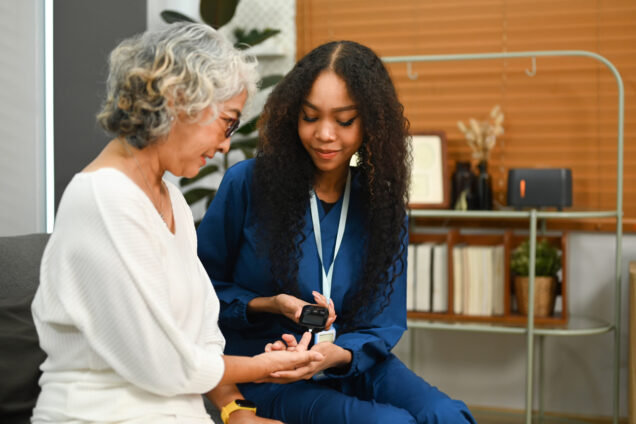
In Vermont, NEPHTC is proud to be apart of the Community Health Equity Partnership (CHEP) with the Vermont Public Health Institute, the Vermont Public Health Association, and the Vermont Department of Health. The CHEP exists to assist the Vermont Department of Health to meet the goals of the CDC Grant to Address Health Disparities. As part of the Statewide Action Learning Collaborative, CHEP has delivered over a hundred email broadcasts from April-December of 22, as well as 45 webinars and discussions, including the training, “The Role of Community Health Workers in Addressing Diabetes.” This webinar centered on how Community Health Workers can provide diabetes support and offer ongoing care in addressing social and health issues.
Community Based Training Partner:
The Vermont Public Health Institute
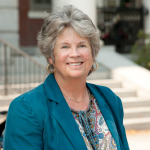 Penrose Jackson
Penrose Jackson
Penrose Jackson is Director of Community Health Improvement at The University of Vermont Health Network. She is currently an advisory board member of the Association for Community Health and President of the University of Vermont Alumni Association. She served as a Senior Fellow with the Health Research & Educational Trust. Penrose is a graduate of the University of Vermont and received a Certificate in Community Benefit from Saint Louis University.

Kenneth Allen, EdD, MBA
Kenneth serves on the Board of Directors for the Vermont Public Health Association and is a senior lecturer in the Department of Biomedical and Health Sciences at the University of Vermont. Prior to moving to Vermont, Kenneth worked for Kaiser Permanente in Northern California as a clinical education coordinator, project manager, and director of imaging services. His work has often focused on regulatory compliance and advocacy, addressing inequities in the delivery of healthcare, and quality improvement in the delivery of diagnostic services. Kenneth received his doctorate in Educational Leadership and Policy Studies from the University of Vermont in 2016.
 Cathy Aikman, MA
Cathy Aikman, MA
Cathy Aikman, MA, is the Operations Manager of the Vermont Public Health Institute. She is passionate about working at non-profits furthering their missions to improve the lives of the people in their communities. She was the Assistant Director at the Turning Point Center of Chittenden County, Project Manager at Aspenti Health, and former Executive Director for the Chittenden County Opioid Alliance, which she joined in May 2016. She also has great interest in the community mental health field and has worked as the Quality Assurance Coordinator at Washington County Mental Health Services, Project Director for Starting Over Strong VT, a FEMA grant statewide crisis counseling program in response to Hurricane Irene, and her most recent position is the Project Director for another FEMA crisis counseling program grant providing mental health support to community members during the pandemic for COVID Support VT. Cathy received her Master’s degree from Tufts University with a focus on Urban and Social Policy after receiving her Undergraduate degree at Ripon College majoring in Sociology and minoring in Environmental Biology.
Partner’s areas of expertise:
Mental Health Upstream, Rural, Health Equity, Systems Thinking
Collaborating partners’ website(s):
Advisory Committee member(s):
 Christian Berry, Director, Workforce Development, Vermont Department of Health
Christian Berry, Director, Workforce Development, Vermont Department of Health
Christian Berry has lead initiatives in Diversity, Equity, and Inclusion for Vermont Department of Health. They are a skilled administrator with broad experience in higher education and social services environments.

